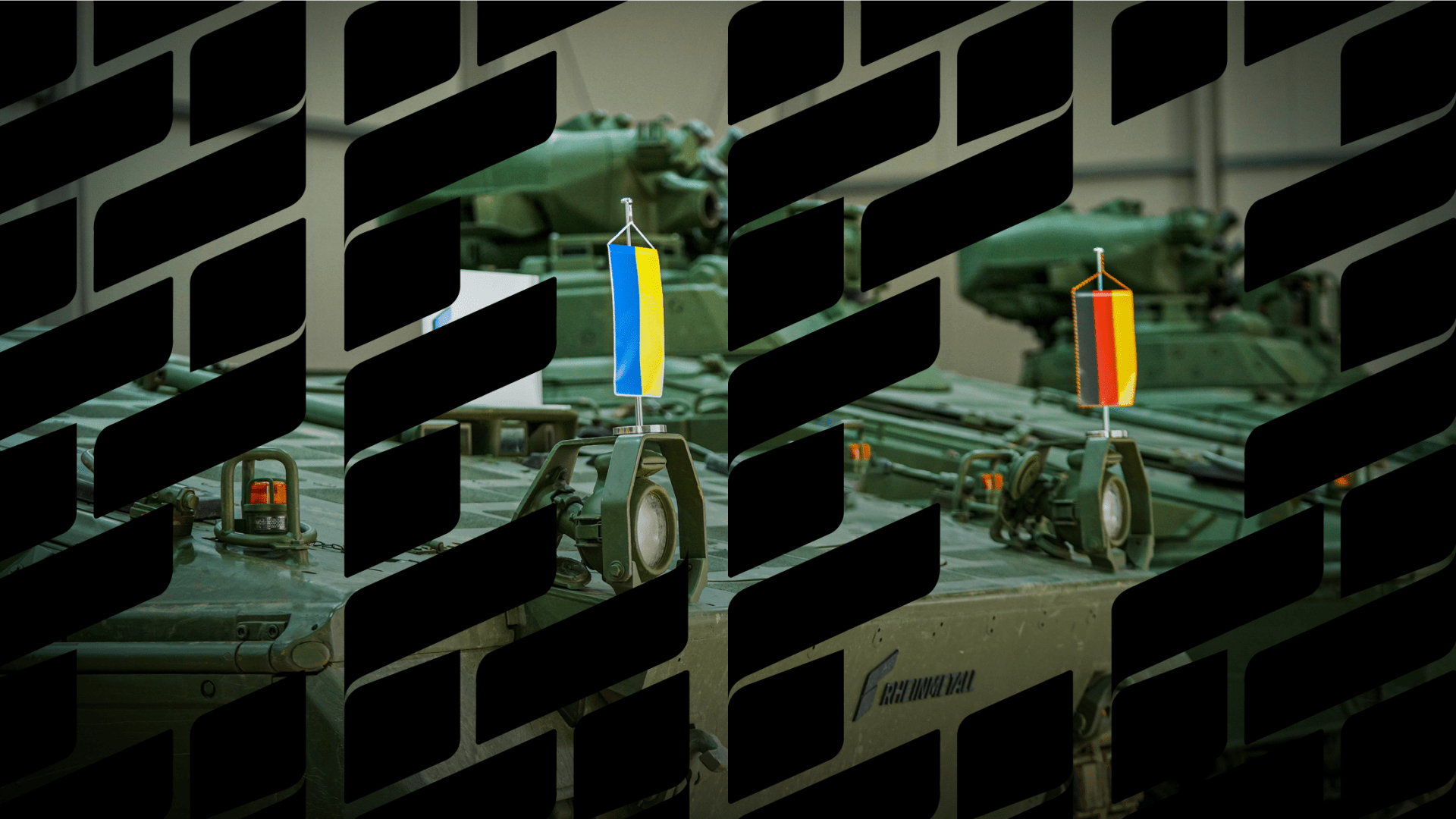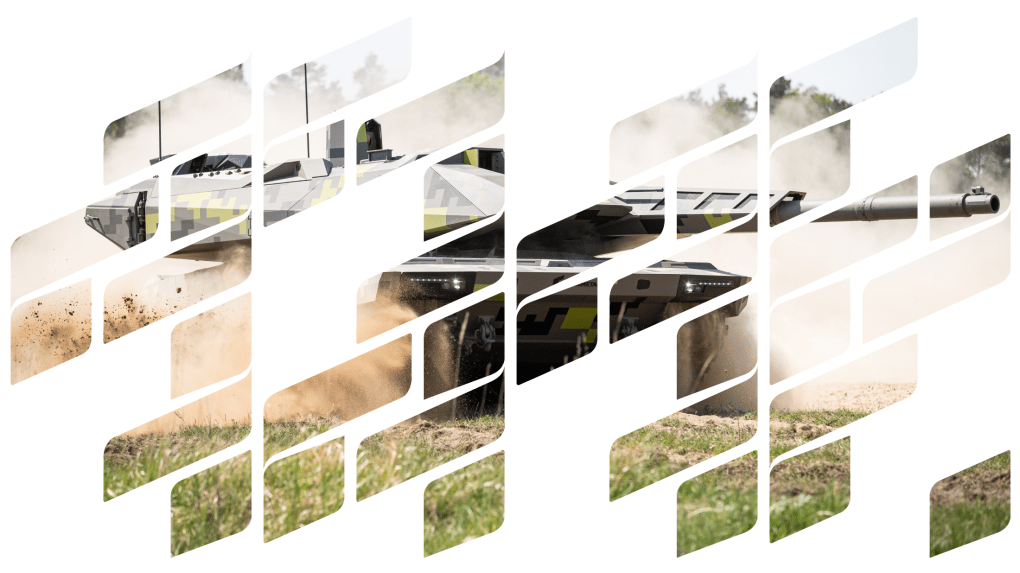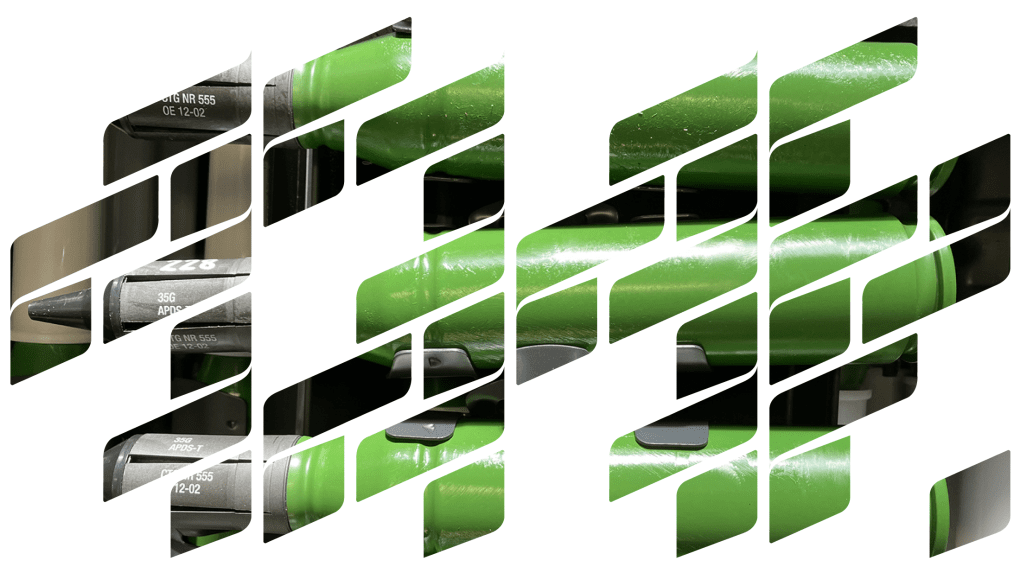- Category
- War in Ukraine
How German Arms Giant Rheinmetall Powers Up Ukraine's Defense

With plans for four factories and billions in annual revenues, German defense company Rheinmetall cements itself as Ukraine’s top defense ally.
Ukraine’s rearmament is accelerating through local production and allied support.
German arms manufacturer Rheinmetall is ramping up its presence in Ukraine like never before. Once ranked within the top 30 arms manufacturers globally by SIPRI in 2022, the company now surges closer to the top 20 (Defense Security Monitor and Defense News ratings)—thanks in no small part to its deepening ties with Ukraine. European partners procure Rheinmetall weapons for the front lines, with CEO Armin Papperger projecting Ukraine will bring in $2-3 billion in revenue each year.
Rheinmetall’s partnership with Ukraine spans multiple sectors—here’s a look at the standout initiatives.
Four factories in Ukraine
The most ambitious project is constructing four Rheinmetall factories in Ukraine. Initially, plans mentioned three plants, but now the scope has expanded, with results already materializing.
The first factory is operational, producing armored vehicles, including Lynx infantry fighting vehicles, says Papperger. The first vehicle is expected to roll off the production line and begin service in Ukraine by the end of the year.

Following this, three more factories are planned:
A gunpowder production facility
Artillery shell manufacturing
Air defense systems production
These factories will help Ukraine meet critical offense and defense needs within its territory. Papperger emphasized that it is vital for Ukraine to be capable of self-defense, making air defense manufacturing a top priority.
Work on the remaining factories is underway, with staff receiving training in Germany. The new Rheinmetall factories will operate using NATO technologies, facilitating a smoother integration of Ukraine’s rearmed forces with those of Western allies.
Maintenance and repair
With the increase in Western military equipment being sent to Ukraine—particularly from Europe, including Germany—Rheinmetall has also begun focusing on equipment repair and refurbishment. While some repairs occur within existing facilities in Europe, the logistics have become time-consuming as the variety of Rheinmetall equipment in Ukraine grows. Thus, repair processes have been split.

Equipment set for deployment to Ukraine—like the Leopard 1A5 tanks—still undergoes refurbishment at Rheinmetall’s European facilities. However, battlefield-active gear is now repaired on Ukrainian soil, saving crucial time and resources. Rheinmetall has set up dedicated repair shops for Marder infantry fighting vehicles, though specific details about other equipment remain under wraps. A joint venture established to handle these repairs is reportedly operating smoothly and efficiently. and thus, thanks to expanded military cooperation, advanced equipment can now be serviced directly on Ukrainian soil.
These Ukrainian-based repair shops reduce both time and logistical costs, cutting out the need for lengthy, resource-draining transport to Poland or Romania.
The upcoming air defense manufacturing plant will also function as a repair site. Systems like the IRIS-T, Gepard, and Skynex 30, which Germany has already supplied to Ukraine, are among the defenses used to protect Ukrainian airspace.
Equipment supply
Rheinmetall supplies Ukraine with a steady stream of military equipment, including Marder infantry fighting vehicles. These vehicles have proven highly effective in Ukraine, said the company sources. In total, around 200 Marders have been delivered.

Rheinmetall supplies other types of weapons, artillery shells, and ammunition, such as 20mm rounds for the Marders, 40mm and 105mm rounds for Leopard 1 tanks, and 120mm rounds for Leopard 2 tanks. The company also provides essential battlefield infrastructure, such as field hospitals.
Global expansion
Weapons production in Ukraine is gradually expanding, with international defense firms building local facilities to meet rising wartime demand and support long-term self-reliance.
But Rheinmetall’s growth is not limited to Ukraine. The company is expanding globally, partially to meet the Ukrainian Armed Forces’ demand for equipment and artillery shells. Recently, Rheinmetall acquired a facility in Romania that produces military vehicles, with some expected to be sent to Ukraine.
With demand for artillery shells and weaponry skyrocketing, Rheinmetall has been acquiring production facilities and defense companies across Europe and beyond. These acquisitions are part of Rheinmetall’s strategy to ramp up artillery production, though the company admits it will take years to fully replenish European stockpiles. For now, Ukraine’s allies, who deliver these munitions to the front lines, remain Rheinmetall’s primary customers.
Beyond Rheinmetall, other companies are also setting up or planning factories in Ukraine. For instance, Baykar’s facility, soon to be completed, will manufacture Bayraktar reconnaissance and combat drones.
-29a1a43aba23f9bb779a1ac8b98d2121.jpeg)
-35249c104385ca158fb62273fbd31476.jpg)


-554f0711f15a880af68b2550a739eee4.jpg)



-206008aed5f329e86c52788e3e423f23.jpg)